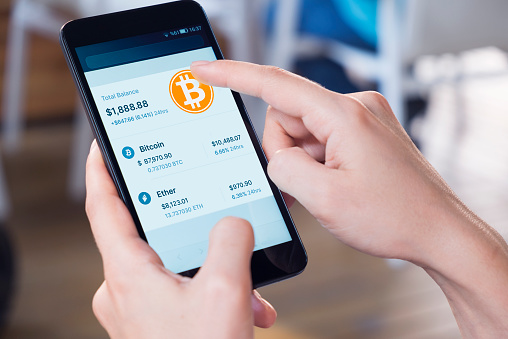
Bitcoin, the largest cryptocurrency, just reached a trading value of more than $12,000, its highest since August 2019. Cryptocurrency price fluctuations are unpredictable, drawing both investors and crooks. Numerous hacks and heists have been recorded on Bitcoin trading and Bitcoin wallets since their start in 2009. According to the “2019 Cryptocurrency Anti-Money Laundering (AML) Report” published by blockchain security firm CipherTrace, cryptocurrency crimes totalled $4.3 billion globally in 2019. In 2019, hackers stole more than $125 million in Ethereum, Bitcoin, and other digital currencies from various cryptocurrency exchanges.
- Cold Wallet
Cold wallets, unlike hot wallets, are not connected to the internet and hence are not vulnerable to cyber attacks. Keeping the private keys in a cold wallet, sometimes called as a hardware wallet, is by far the safest choice since these wallets are encrypted. The Japanese platform BITpoint identified an unlawful $32 million withdrawal from their hot wallet in several cryptocurrencies targeting over 50,000 customers in 2019. Bitcoin, Ethereum, BitcoinCash, Ripple, and Litecoin were among the five cryptocurrencies kept on the exchange’s hot wallet. However, BITpoint stated that the event had no impact on their cold wallet or cash reserves.
- Secure Internet
Use only a protected internet connection and prevent public Wi-Fi connections while trading or conducting crypto transactions. Use a VPN even while connecting to your home router for further protection. Your Internet address and location are changed using a VPN, which keeps your internet behaviour safe and confidential from malicious attackers.
- Creating Several Bitcoin Wallets
You may diversify your Bitcoin assets by using a trustworthy Bitcoin wallet because there are no restrictions on wallet creation. You could use one wallet for everyday transactions and another for everything else. This will help you secure your cryptocurrency assets and decline the risk of a security compromise.
- Keeping Your Personal Device Safe
To protect against newly identified vulnerabilities, ensure your personal device is updated with new antivirus programs. To prevent hackers from exploiting the flaw by building programmes to target the vulnerability, use a robust anti-virus and firewall to increase your device’s security.
- Change your password on regular intervals
The value of a strong password cannot be overstated when it comes to security. According to a research, three-quarters of millennial consumers in the United States are using the same passcode on more than ten different devices, applications, and social media accounts. The majority of them were also using the same credentials in over 50 various sites, according to the report. Make sure you have a password that is both strong and complicated, as well as one that is difficult to guess.
The cryptocurrency sector is always changing, and it is solely your obligation to safeguard your digital cash by safeguarding your wallet with necessary security features. Keep up with the most recent security news, attack methodologies, and defence measures.








